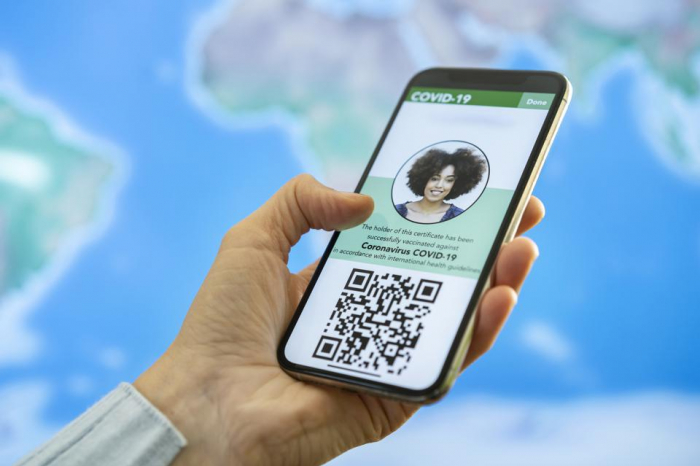As the number of countries embracing digital vaccine passports grows in Europe and elsewhere, one former head of state says it’s just a matter of time before they take off around the world.
That’s because, as international travel restarts, the global public will demand a system that gives them confidence to get back to life as we once knew it, former British Prime Minister Tony Blair said during a recent interview with BBC Radio 4’s “Week in Westminster.”
Blair envisions a digital health certificate or passport that is recognized universally that combines vaccination and testing status. This would both allow countries to defend themselves better against the coronavirus and also permit people to start traveling and going about their favorite activities.
Getting Britons vaccinated at scale is “a national security issue” as well as a global security issue, told Radio 4 listeners. “If you look at the damage to our economy and the global economy, it’s massive. I mean, this is the biggest crisis the world has faced as a global crisis since the Second World War.”
While lockdowns can be effective in slowing down the disease, Blair said strict travel restrictions are not a sustainable option. “The one thing that’s very clear is that disease anywhere is disease everywhere,” he said. “Even those countries that have gone for eradication because they’ve been able to do so — like for example New Zealand, South Korea, Australia — I mean, at some point they’ve got to open back up again.”
Two weeks ago, Blair told The Telegraph there were two significant risks if the UK failed to support a global coronavirus vaccine passport program. “One is that everyone just does their own thing, which is much more chaotic and difficult to manage. Or secondly, there's a set of rules in place that you may not be that happy with,” said Blair. “It's better to have common rules and a common verification system, so that people know what your disease status is and know it with some validation."
But so far, there has not been an international consensus on vaccine passports. Only a small but growing number of countries have already launched or soon will launch their own vaccine certification programs. But Blair says the majority of countries in the world will jump on the bandwagon when the most powerful nations finally step up.
“They’ll sign up to it as soon as the leading countries of the world put their heads together and devise a common set of standards,” said Blair. “Look, I have looked at this from every single angle and I just can’t see another way out of it.”
Blair believes that every country will need a long-term solution that delivers confidence to the public. “The early evidence seems to be that if you’re vaccinated, you’re less likely to transmit the disease,” said Blair, adding that being able to show proof of inoculation in order to engage in certain activities is “just inevitable.”
“When you start to reopen your borders again, you’ll want to know the disease status of people coming into your country. Once vaccination really starts to be widespread, of course you’re going to ask for proof of what the vaccination status is,” said Blair. “Therefore it’s best to start now on trying to devise common standards and if you start to do this on a vast scale, you’re going to need the technology that allows you to do it digitally.”
Last month, Ursula von der Leyen, president of the European Union Commission, voiced support for creating a common EU-established vaccination certificate that can be issued by member states. She was responding to a letter from Greek Prime Minister Kyriakos Mitsotakis, who asked the European Commission to introduce a standardized coronavirus vaccination certificate to facilitate travel within the European Union bloc.
On his full first day in office, President Joe Biden revealed his 200-page national pandemic strategy with seven goals aimed at ending the Covid-19 pandemic. Buried in the report is a directive for multiple government agencies to work together to “assess the feasibility” of linking Covid-19 vaccinations to international vaccination certificates and producing electronic versions of them.
But to date, the biggest push for vaccine certification in the United States has come from the private sector.
One group working to provide such a standard is the Vaccination Credential Initiative, a coalition of heavy-hitter tech and healthcare companies, including Microsoft, the Mayo Clinic, Oracle, Mitre, Cerner, the Carin Alliance and Salesforce. The group is working together to create a “trustworthy, traceable, verifiable, and universally recognized digital record of vaccination status” that would allow people to “safely return to work, school, events, and travel,” according to the initiative’s website.
Blair sees vaccine passports as the way forward, not just for a return to travel, but to life. “Supposing you were going to go back into your workplace today, you would prefer to know that the people you were going back to work with had been tested. You’d prefer to know that they’d been vaccinated when vaccination becomes available to the majority of the population,” he said. “These things are just inevitable.”
Forbes
More about:
















































